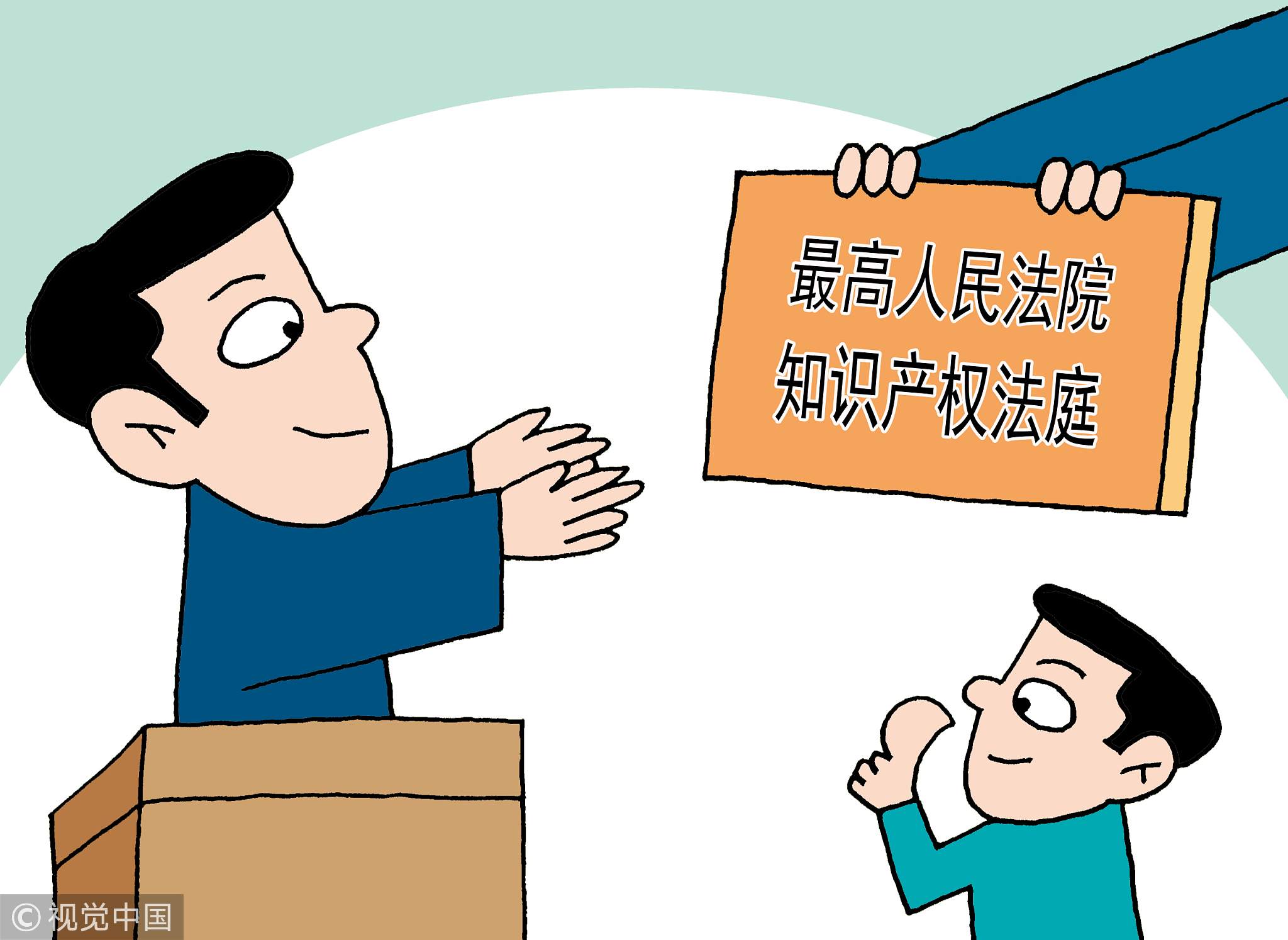
Opinions
13:24, 02-Jan-2019
Opinion: Establishment of IPR court sign of China's continued innovation
Updated
13:12, 05-Jan-2019
Erick Robinson

Editor's note: Erick Robinson is a partner at Dunlap, Bennett & Ludwig and Director of Litigation at Intel strategy IP and is based in Beijing and Houston. He has over 20 years of experience in patent licensing and litigation, including as Director of Patents for Qualcomm in Beijing. The article reflects the author's opinion, and not necessarily the views of CGTN.
China has just taken the next step in continuing to build the best patent enforcement system in the world. Effective from January 1, 2019, the Supreme People's Court (“SPC”) enacted a national appellate court for civil and administrative IP cases. The new Intellectual Property Rights Court for Appeals (“IPRCA”) serves as a permanent division under the SPC and will mainly handle appeals in high-tech/patent cases.
In addition to hearing appeals in cases concerning invention patents, utility model patents, design patents, new plant varieties, layout design of integrated circuits, know-how, computer programs, and antitrust, the new IPRCA can also hear major and complicated first instance civil and administrative cases, as well as other cases that the SPC considers should be tried before the IPRCA. While it is not yet clear what “major” and “complicated” mean, but we will find out as the new Court works through cases this year.
Founding of the IPRCA should prevent inconsistency between different courts. Previously, appeals for patent cases were generally decided by the Higher People's Court in the same province as the first instance court. Because these courts are geographically disparate and often have different legal and technical expertise, appellate results were sometimes inconsistent with each other.
Furthermore, by having important and complicated cases heard on the first instance by a sophisticated high-level court, time should be saved. By having a single, national appellate court for patent cases, China now has an even stronger, central, well-managed patent enforcement system than it already had. Also, the likelihood of any unfair local interest skewing the enforcement results is minimized by having a centralized IP trial and appeals court.

Intellectual Property Court of Supreme People's Court is inaugurated in Beijing. /VCG Photo
Intellectual Property Court of Supreme People's Court is inaugurated in Beijing. /VCG Photo
Creation of the IPRCA will likely further expedite the importance of patents and innovation to the Chinese economy. The establishment of the Court of Appeals for the Federal Circuit (the “Federal Circuit”) as a national patent appeals court in the United States in 1982 led to a focus on innovation. Previously, patent law was seen as the intellectual backwoods of U.S. law, as were patent lawyers.
However, throughout the 1980s and 1990s through the late 2000s, as the U.S. cemented its place as the leader in innovative technologies, patent law and lawyers became more important. Indeed, most of the largest and most important legal cases during this time were patent cases. This helped develop U.S. patent law to allow technology startups in Silicon Valley, for instance, to take on large companies and launch the technologies of today. Founding the IPRCA will help lead China down this same patent to technological and innovation dominance.
As a U.S. patent attorney who has litigated some of the most important cases in the past 20 years in the United States and Europe, I have been remarkably impressed by the changes that China has made to its patent system. China's emphasis on strong patent rights over the past few years and has moved it from “worst to first” in patent enforcement. There are still many (including the U.S. government) who have not been paying attention to China's rise in the patent sector, which is particularly ironic because the U.S. has systematically devalued patent rights over the last 10 years.
As an experienced international patent litigator, I can provide specific parameters that make China a strong legal environment for the protection of patent rights. First, the quality of patents has risen and continue to grow. Recent organizational changes at the China National Intellectual Property Administration (“CNIPA”) will add to the efficiency and effectiveness of the Chinese patent office.
Additionally, the first IP Court was established in Beijing in November 2014 and was quickly followed by IP Courts in Shanghai and Guangzhou. In 2017 and 2018, 17 specialized IP tribunals were created throughout China.

China's innovation in protecting intellectual property rights is advancing. /VCG Photo
China's innovation in protecting intellectual property rights is advancing. /VCG Photo
Beyond the quality of the judges and patents, there are many other reasons why I believe China is already the best place in the world to enforce patents:
1. China is a top sales and manufacturing market worldwide
2. Much of the world's innovation is now coming out of China
3. Patent owners win enforcement actions over 80 percent of the time
4. Short time to trial/judgment (less than one year in most cases)
5. Low cost to litigate (around 10 percent of the cost of litigating a similar case in the U.S.)
6. Validity challenges are successful only around 35 percent of the time (unlike the U.S., where the rate of invalidation is 70-95 percent)
7. Injunctions are provided as a matter of right to a successful patent owner
8. Win rates for foreign entities are equal to or higher than those for Chinese entities
All of this leads to a predictable, effective, efficient patent enforcement system. Clearly, the Chinese system is not perfect, as no system will be. For example, compensatory damages are still far too low to compensate patent owners, but this is rapidly changing. Additionally, there is no national database for patent case decisions.
Additionally, even if the system in China is not perfect, it is currently far better than anyplace else. As China continues to focus more resources on innovation and patents, the country will lead the world not just in IP rights, but in technological innovation because without patents as an incentive, there will be no innovation.
(If you want to contribute and have specific expertise, please contact us at opinions@cgtn.com.)

SITEMAP
Copyright © 2018 CGTN. Beijing ICP prepared NO.16065310-3
Copyright © 2018 CGTN. Beijing ICP prepared NO.16065310-3